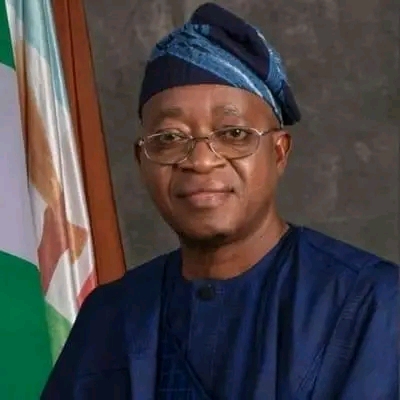
Abuja has been chosen as the venue for the National Consultative Workshop convened by the African Union Inter-African Bureau for Animal Resources (AU-IBAR) and backed by the Kingdom of Norway.
The event, fashioned to forge Nigeria’s National Blue Economy Strategy, is spearheaded by the Minister of Marine and Blue Economy, H.E. Adegboyega Oyetola. The workshop kicked off with a fervent call to confront the dual challenges and opportunities presented by the blue economy.
Representing Oyetola, the permanent secretary, Olufemi Oloruntola underscored the imperative to balance economic advancement and environmental preservation. “The blue economy holds immense promise for sustainable development, but it also poses significant challenges,” he emphasised.
Highlighting concerns including over-exploitation of marine resources, habitat degradation, pollution and climate change, Oloruntola stressed the urgent need for collaborative action. “Concerted efforts are essential to foster responsible resource management, mitigate environmental degradation and bolster climate resilience,” he urged.
Echoing the sentiment, he outlined the potential economic windfalls awaiting prudent investment in sustainable ocean practices. “Unlocking the vast potential of our oceans can drive inclusive growth, foster employment, and alleviate poverty, particularly in coastal communities,” he emphasised.
The workshop, attended by a diverse array of stakeholders, featured prominent figures such as founder of the African Maritime Environment Sustainability Initiative (AFMES), Dr. Felicia Chinwe and Dr. Awwal Bamanga from the Nigerian Maritime Administration and Safety Agency (NIMASA), who underscored the importance of maritime safety and shipping regulation.
Academic voices, including Professor Flora Olaifa from the University of Ibadan, emphasised the crucial role of research and planning in nurturing Nigeria’s marine and blue economy.
However, amidst the discourse on opportunity and growth, sobering realities were not overlooked. Director of the maritime services department at the Federal Ministry of Marine and Blue Economy, Mr. Babatunde Sule drew attention to the pressing issue of maritime accidents and loss of lives. He emphasised the paramount importance of preventive measures to avert such tragedies.
As the workshop delved into technical sessions, participants remained committed to crafting a comprehensive strategy that not only harnesses the economic potential of Nigeria’s marine resources but also ensures their sustainable management and conservation. With collaborative efforts and strategic planning, Nigeria stands poised to chart a course towards a prosperous and sustainable blue economy future.

